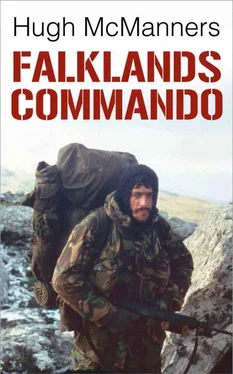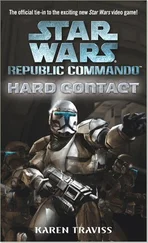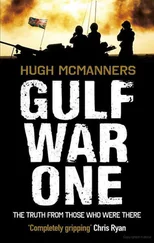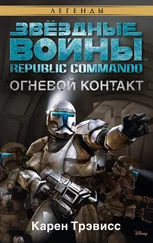Hugh McManners - Falklands Commando
Здесь есть возможность читать онлайн «Hugh McManners - Falklands Commando» весь текст электронной книги совершенно бесплатно (целиком полную версию без сокращений). В некоторых случаях можно слушать аудио, скачать через торрент в формате fb2 и присутствует краткое содержание. Город: London, Год выпуска: 2014, ISBN: 2014, Издательство: Nightstrike Publishing, Жанр: nonf_military, Биографии и Мемуары, на английском языке. Описание произведения, (предисловие) а так же отзывы посетителей доступны на портале библиотеки ЛибКат.
- Название:Falklands Commando
- Автор:
- Издательство:Nightstrike Publishing
- Жанр:
- Год:2014
- Город:London
- ISBN:978-0-992-81540-0
- Рейтинг книги:4 / 5. Голосов: 1
-
Избранное:Добавить в избранное
- Отзывы:
-
Ваша оценка:
- 80
- 1
- 2
- 3
- 4
- 5
Falklands Commando: краткое содержание, описание и аннотация
Предлагаем к чтению аннотацию, описание, краткое содержание или предисловие (зависит от того, что написал сам автор книги «Falklands Commando»). Если вы не нашли необходимую информацию о книге — напишите в комментариях, мы постараемся отыскать её.
Falklands Commando — читать онлайн бесплатно полную книгу (весь текст) целиком
Ниже представлен текст книги, разбитый по страницам. Система сохранения места последней прочитанной страницы, позволяет с удобством читать онлайн бесплатно книгу «Falklands Commando», без необходимости каждый раз заново искать на чём Вы остановились. Поставьте закладку, и сможете в любой момент перейти на страницу, на которой закончили чтение.
Интервал:
Закладка:
It took ten days to get to Ascension Island – longer than expected. We’d failed to appreciate the distances involved and had thought in terms of a week to Ascension, then another week to the Total Exclusion Zone (TEZ).
The importance of world news was totally eclipsed by personal news from home. We’d managed to get our mail away at Gibraltar by helicopter as we passed, but received none in return. We’d been told that mail for us was piling up at Ascension, and were desperate for it. As we drew closer, Bill McRae was overwhelmed by demands for stamps, so he issued two per head with the eminently sensible instruction that several letters be included in each envelope for reposting in the UK.
Everyone knows from the last war just how important mail is for morale. But you have to be in a situation like ours to really appreciate it. Letters from home become the only truly private thing you have, and the only proof of your existence as an individual outside the military machine. Soldiers who didn’t receive any mail would often be given letters by their mates to read – usually with the ‘sports page’ omitted.
Chapter 3. Planners and Hoaxers
Once the rough weather abated, seasickness eased and we began to feel better, the endless task of planning began. 3 Commando Brigade Staff on HMS Fearless churned out scenario after scenario, appreciations, plans, then counter-plans. A helicopter shuttle service round the fleet was started, one circuit in the morning and back again late afternoon. Known as the ‘SDS run’ (SeaKing Delivery Service), it was mostly done by Sea Kings from Fearless , which were too big to land on the other ships. So men, supplies and mail had to be winched up and down from the hover while the ships steamed onwards. This process was time (and fuel) consuming, and very tiring for the pilots.
As a passenger it meant at least one day wasted – waiting for an SDS to arrive, going with it round the fleet, finding out from the crewmen that they’d already been to your destination, landing somewhere else, having lunch and waiting until they came back on the afternoon run to deliver you to your destination or back to where you started. At this stage the crewman usually took pity on you and flew you direct.
The confusion increased as we steamed south. The ships painted out their recognition numbers and letters so that, even to the trained eye, ships of the same type could not be differentiated. People were regularly landed on the wrong ship, and got stuck there if the weather changed for the worse and the SDS could not fly.
I ventured into this chaos in order to go to the fount of all wisdom, HMS Fearless , to see for myself what was being planned. It was most unlike Sir Percivale, with her lack of water, washing and the beard-growing competition. Everyone was spruce, brisk and military, lifejackets and respirators ready for immediate use on their waist belts, and carrying briefcases. The wardroom was very much larger than our cosy room on Sir Percivale , but crowded with staff officers standing in groups, pointing at files and arguing. The corridors were lined with cartons of breakfast cereal and floored with boxes of tinned tomatoes and baked beans, so you had to crouch as you walked.
Lieutenant-Colonel Mike Holroyd Smith, tall, fair-haired, nicknamed ‘Michael Caine’ by the soldiers because of a resemblance, and by the officers simply as ‘HS’, commanded 29 Commando Regiment Royal Artillery. He was the brigadier’s adviser on all aspects of fire support, from naval gunfire, artillery and fighter-ground attack (the Harriers), to the Rapier and Blowpipe air defence missiles, and also his deputy. HS had been the ‘Black Eight’ battery commander during my first posting as a second lieutenant in 1974 so we knew each other pretty well. He smoked a stubby pipe, and whenever he felt his point was not being taken he would remove it from his mouth and poke the stem at whoever was being slow to follow his argument.
There was much peacetime sophistry concerning gunnery which had to be dispelled so realistic plans could be made. Colonel Mike would lecture groups of offending staff officers, jabbing the air with his pipe, turning to me with a glinty smile and saying, out of the corner of his mouth, “These bloody staff officers. They don’t have the first idea about artillery.”
He certainly knew what he was talking about and thankfully, by dint of his experience and strong personality, the Brigade Staff listened to him. He’d spent his early career in Oman fighting communist infiltrators from the Yemen and his views on artillery were simple, direct, uncompromising and, more importantly, had already been tested in action. He was good to work for because he let you get on with it, didn’t mind mistakes (but woe betide if you made the same one twice) and made it quite clear what he required.
The resident Falklands expert was another friend from RM Poole, Major Ewen Southby-Tailyour. He’d commanded a previous Falklands Naval Party 8901 and, being a very keen yachtsman, had produced a book on inshore navigation around the islands, which he’d published to very little response. (Afterwards this book was to be re-printed and Ewen become Yachtsman of the Year.) He was very lively company but, as the expedition progressed, became increasingly worried. Ewen’s judgement and information were increasingly to be relied on, for the critical decisions regarding where we were to land. He agonised over the accuracy and relevance of his information, as he knew the dreadful implications of landing in the wrong place for us all
Lieutenant-Colonel Mike Rose, the Commanding Officer of 22 SAS, beavered away in a green-painted Portacabin lashed down on the port Sea Cat deck, more usually used to instruct officer cadets in the mysteries of navigation. Tall, boyish and athletic-looking, with a very clear, direct gaze, he was a prime example of that most elite of breeds, the intelligent Guards officer. An historian from my Oxford college St Edmund Hall, Mike Rose was an advocate of the hard-hitting raid and reckoned the whole thing could be sorted out quickly with a few full-blooded efforts. As he’d commanded Operation Nimrod – the SAS’ assault on the Iranian Embassy in London two years earlier, this was to be expected. Various ferocious plans were generated, for instance an ‘Israeli-type’ raid on Port Stanley airfield with Hercules troop-transporters disgorging a squadron of SAS to create mayhem.
Brigadier Julian Thompson presided over this ants nest of furious staff work with a calm but firm influence. He was universally known and liked, and knew most of the officers in 3 Commando Brigade by name. He was under great pressure – from above in London, sideways from the Navy, plus he had to do his own job as well.
In the planning stages, everyone put forward their ideas, of which some would be examined in more detail. It was essential that everyone act true to their own role, for example that artillerymen stress the advantage and devastation of naval and field artillery and the SAS the psychological impact (on already tremulous conscript soldiers) of the morale-cracking violence of their methods. From all these ideas the brigadier could put together realistic plans to fit the political options – which at this early stage could mean virtually anything. Some hare-brained schemes resulted and so were eliminated as the staff worked towards a set of workable military options to match the ever-shifting political and diplomatic developments.
We continued to be depressed by the gloominess of world news, the routine of shipboard life and our military preparations. Every day that passed made the first-aid lectures, the weapon-training drills and talks about the geography, flora and fauna of the Falklands seem more relevant. Our future was very uncertain. Tomorrow there might be a political settlement, or we would continue sailing south toward possible destruction. It was important to stay positive, and divert everyone’s mind from the grim options. My small contribution was to keep writing for the Oily Rag . Here’s the report of my visit to HMS Fearless and the rumours we’d heard (and hoped were true) that they were suffering food shortages:
Читать дальшеИнтервал:
Закладка:
Похожие книги на «Falklands Commando»
Представляем Вашему вниманию похожие книги на «Falklands Commando» списком для выбора. Мы отобрали схожую по названию и смыслу литературу в надежде предоставить читателям больше вариантов отыскать новые, интересные, ещё непрочитанные произведения.
Обсуждение, отзывы о книге «Falklands Commando» и просто собственные мнения читателей. Оставьте ваши комментарии, напишите, что Вы думаете о произведении, его смысле или главных героях. Укажите что конкретно понравилось, а что нет, и почему Вы так считаете.












